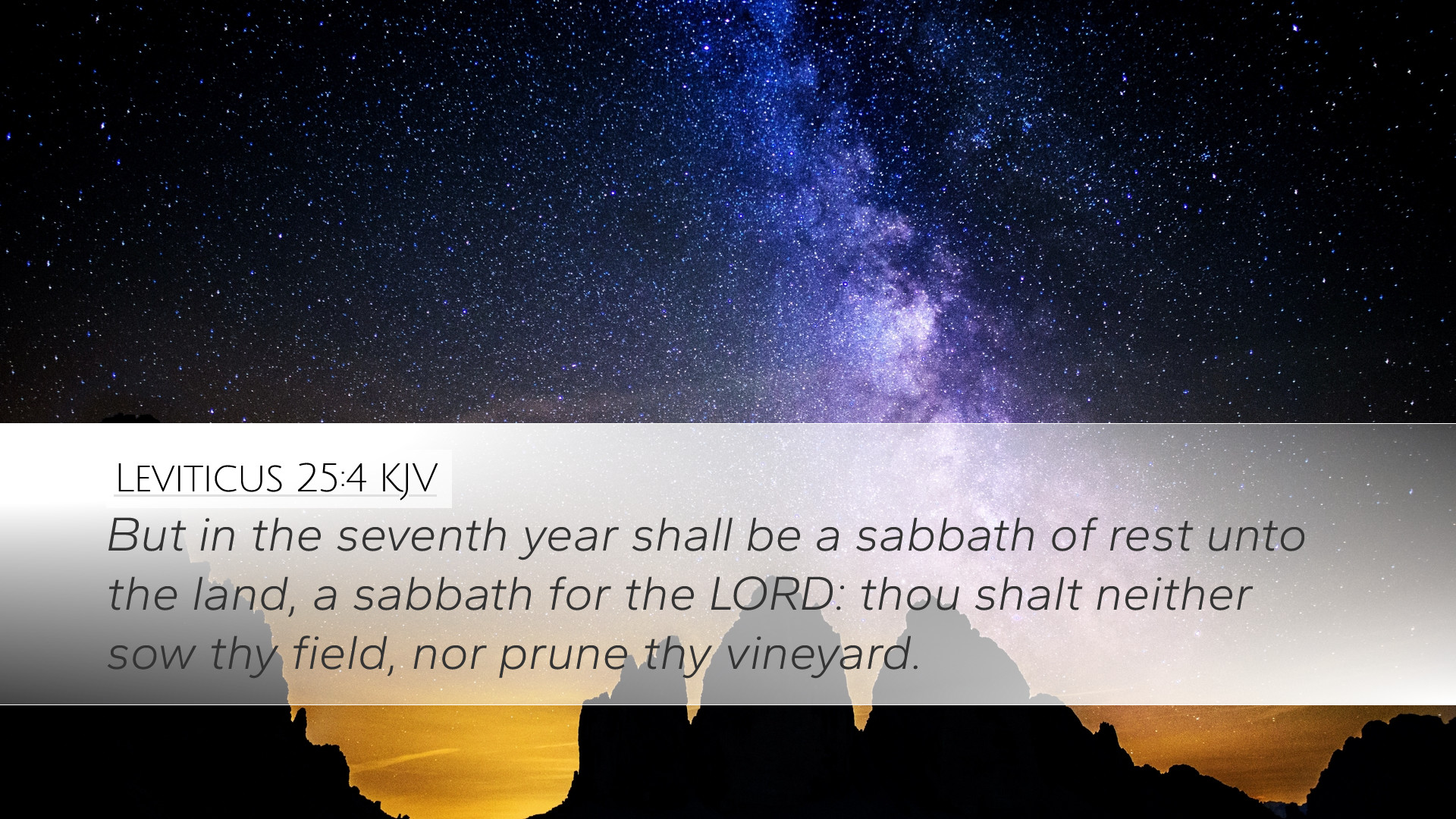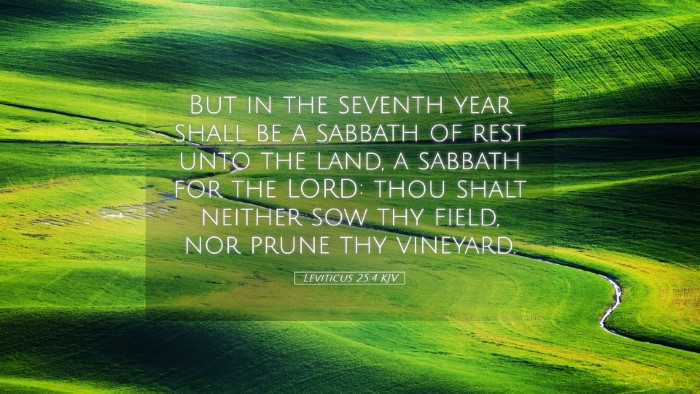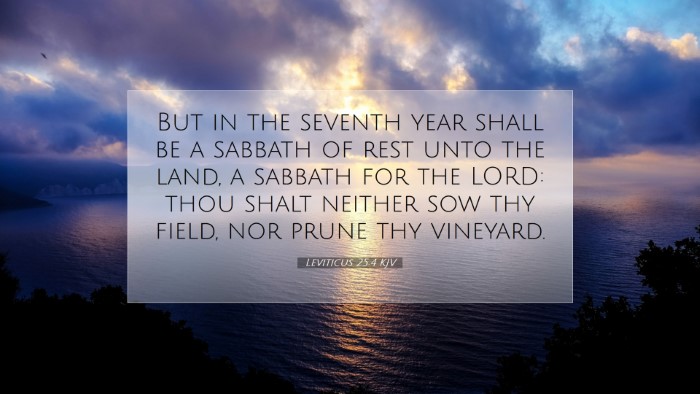Commentary on Leviticus 25:4
Verse: "But in the seventh year shall be a sabbath of rest unto the land, a sabbath for the LORD: thou shalt neither sow thy field, nor prune thy vineyard."
Introduction
Leviticus 25:4 establishes the principle of the Sabbath year, a divine command that emphasizes rest not just for individuals but also for the land itself. This passage invites deeper theological reflection on God's rhythm of work and rest. The following commentary synthesizes insights from historic public domain sources to enrich understanding for pastors, students, and scholars.
Theological Significance
The Sabbath year is an expression of God's sovereignty over creation. Just as the Sabbath day provides a respite from labor, so too does the Sabbath year offer the land an opportunity for rejuvenation. It signifies a reliance on divine provision and fosters stewardship of God's creation.
Matthew Henry's Insights
Matthew Henry emphasizes that the rest granted to the land serves both a practical purpose and a spiritual one. He observes that by refraining from agricultural activities for an entire year, the Israelites were reminded of their dependence on God for sustenance. This command offered a proactive stance against greed, encouraging them to trust in God's providence for their needs.
Albert Barnes' Commentary
Albert Barnes elucidates the social implications of the Sabbath year. He points out that allowing the land to rest contributed to social justice. It provided the poor and the needy an opportunity to gather freely from the fields, promoting equity among the Israelites. Barnes’ interpretation aligns with the broader biblical theme of caring for the less fortunate and emphasizes that there is spiritual benefit in community provision.
Adam Clarke's Analysis
Adam Clarke highlights an important aspect of the Sabbath year—the prophetic foreshadowing of eternal rest. He suggests that just as the land receives a sabbath, humanity too is invited to rest in God’s ultimate promise of rest in eternity. Clarke urges readers to view this command as a precursor to the spiritual rest offered through Christ, urging believers to relinquish their toil in favor of divine peace.
Cultural Context
Understanding the cultural context of ancient Israel enhances the significance of Leviticus 25:4. The agrarian society relied heavily on the stability of their farming cycles. Disobedience to this command was not merely a personal failing, but it could have dire consequences for the entire community. The land's cycles of harvest and fallow were integral to their national identity and religious practice.
Practical Applications
- Trust in Divine Provision: Reflecting on the Sabbath year, believers are reminded to trust in God's provision, especially in times of uncertainty.
- Environmental Stewardship: This passage encourages modern readers to consider sustainable practices in their care for the earth, echoing the biblical mandate for stewardship.
- Social Justice: The insights on supporting the marginalized can inspire community engagement in modern social justice initiatives.
- Spiritual Rest: This passage prompts individuals to reflect on their spiritual health and the importance of regular times of rest and renewal in God's presence.
Conclusion
Leviticus 25:4 serves as more than just a historical account; it is a transformative command that speaks to God's design for creation, community, and individual spiritual health. The collective insights from Matthew Henry, Albert Barnes, and Adam Clarke illuminate the multifaceted nature of this passage, urging us to consider our relationship with God, the earth, and one another.


